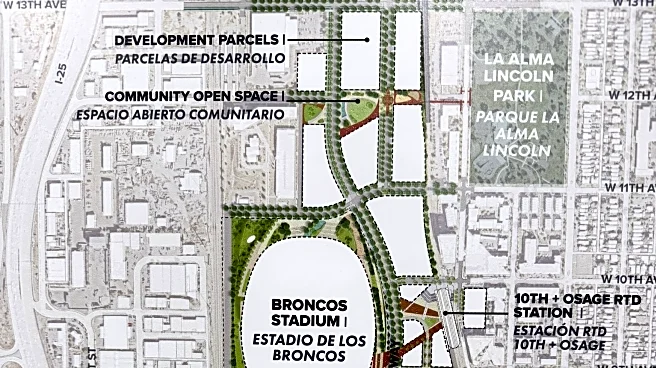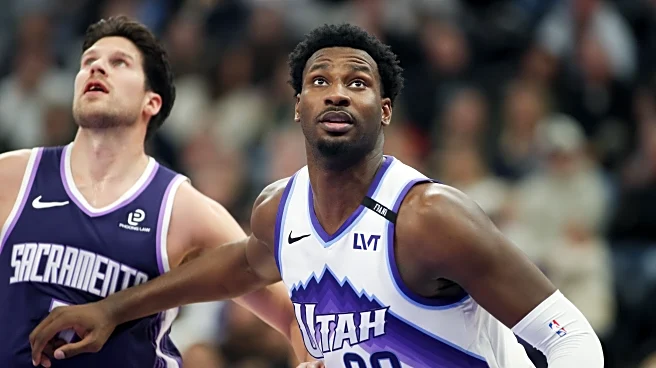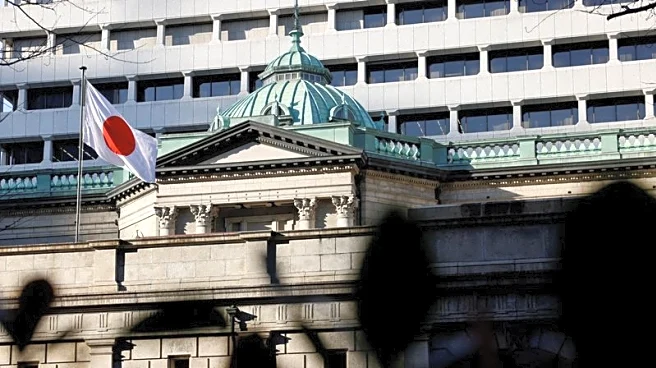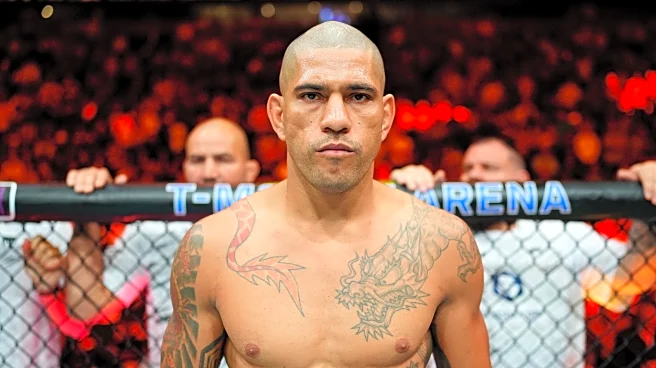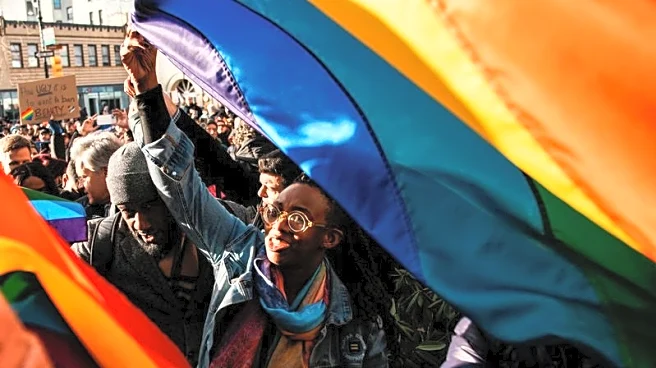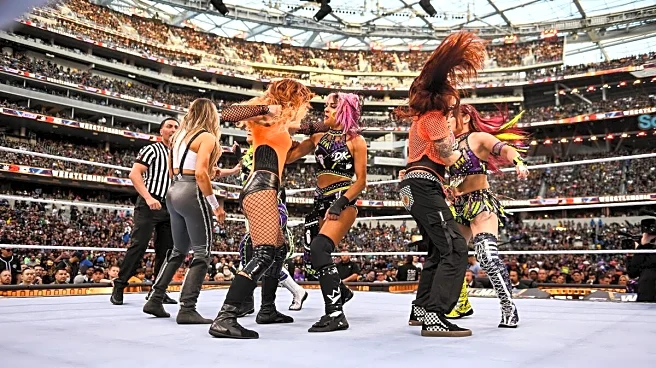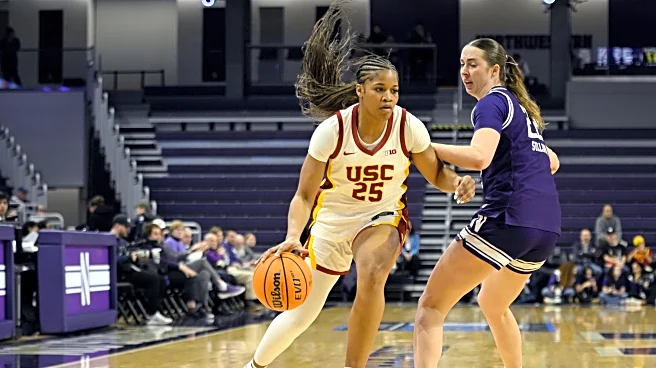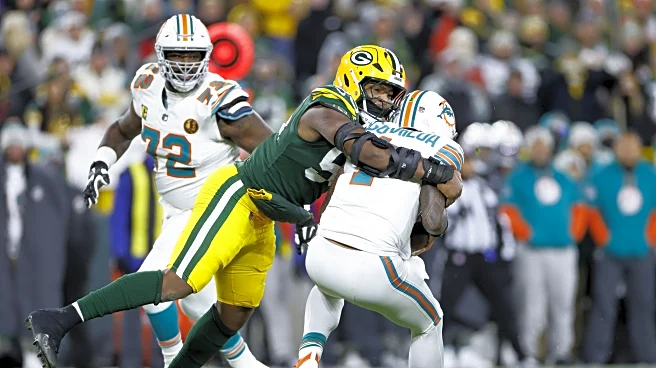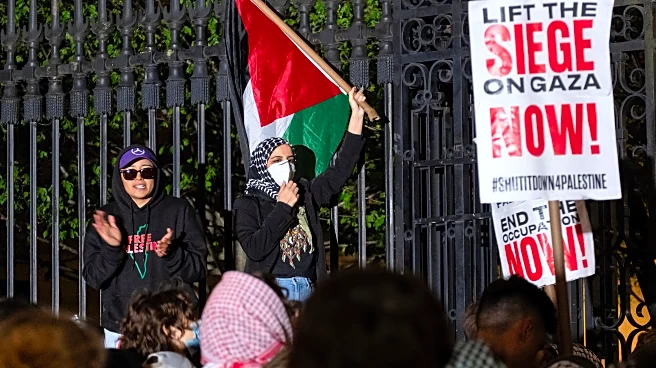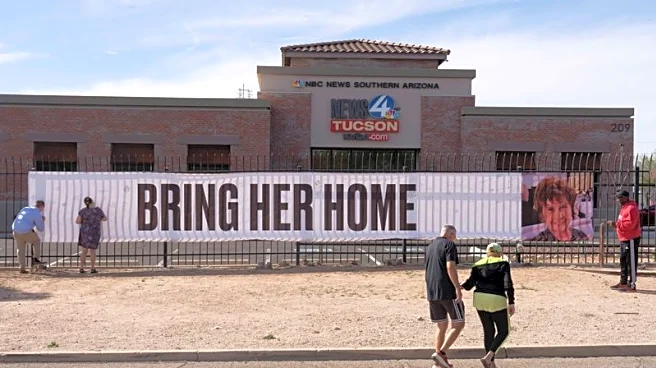LA PAZ, Bolivia (AP) — Bolivia's presidential vote headed to an unprecedented runoff after elections Sunday that ended more than two decades of left-wing dominance in the Andean nation but signaled voters'
trepidation about a major lurch to the right.
A dark horse centrist, Sen. Rodrigo Paz, drew more votes than the right-wing front-runners, although not enough to secure an outright victory, early results showed.
Paz, a former mayor who has sought to soften the edges of the opposition’s push for tough austerity to rescue Bolivia from a looming economic collapse, will face off against right-wing former President Jorge “Tuto” Quiroga, who finished second. Bolivia holds the presidential runoff — its first since its 1982 return to democracy — on Oct. 19.
“This economic model must change," Paz declared to crowds who cheered and chanted, “Renewal!"
Paz’s campaign gained unexpected traction in recent weeks as he teamed up with Edman Lara, a social media savvy ex-police captain with evangelical backing whose supporters see him as a bold leader willing to stand up to corruption in the security forces.
With over 91% of the ballots counted Sunday, Paz received 32.8% of the votes cast. Quiroga secured 26.4%. Candidates needed to surpass 50%, or 40% with a 10-point margin of victory, to avoid a runoff.
Addressing fans and flanked by family as confetti hearts sprayed from the ceiling, Quiroga congratulated Paz on his lead.
“What happened is unprecedented,” he said. “Bolivia told the world that we want to live in a free nation.”
The results delivered a stunning blow to Bolivia's hegemonic Movement Toward Socialism, or MAS, party, which has governed Bolivia almost uninterrupted since its founder, charismatic ex-President Evo Morales, rose to power as part of the “pink tide” of leftist leaders that swept into office across Latin America during the commodities boom of the early 2000s.
The official MAS candidate, Eduardo del Castillo, finished sixth with just 3.2% of the vote. A leftist candidate considered to be the party's best hope, 36-year-old Senate president Andrónico Rodríguez, captured 8% of the vote.
During his almost 14 years in power, Morales expanded the rights of the country’s Indigenous majority, defended coca growers against U.S.-backed eradication programs and poured natural gas profits into social programs.
But the maverick leader’s increasingly high-handed attempts to prolong his presidency — along with allegations of sexual relations with underage girls — soured public opinion against him.
Simmering discontent turned into a tidal wave of outrage as Bolivia’s once-stable economy imploded under Morales’ protégé-turned-rival, President Luis Arce.
Annual inflation rate has soared from 2% less than two years ago to 25% as of last month. A scarcity of fuel has paralyzed the country. A desperate shortage of U.S. dollars needed to pay for essential imports like wheat has crippled the economy.
As the crisis accelerated, MAS leaders traded blame. A power struggle between Morales and Arce fractured the bloc and handed the opposition its first real shot at victory in decades even as its uncharismatic candidates failed to unite.
In perhaps the most visible sign of how fed up Bolivians are with the party, leftist politicians casting their ballots across Bolivia on Sunday faced barrages of boos, insults and thrown objects.
Blocked from running by a court ruling on term limits, Morales has been holed up in his tropical stronghold of Chapare for months evading an arrest warrant for allegedly impregnating a 15-year-old girl while president.
He has branded Rodríguez a traitor for competing and encouraged his supporters to register their anger at his exclusion by casting null-and-void ballots.
His followers appeared to heed his calls: An unusually high proportion of votes, 19%, were deemed invalid. Usually the share of blank and null votes doesn't exceed 6%.
Tensions ran high as Morales' supporters mobilized against elections but voting even in the restive jungle largely passed peacefully, authorities said, with only minor disruptions.
A dynamite stick went off near the school where Rodríguez planned to cast his ballot in Chapare. When he arrived hours later, pro-Morales crowds assaulted him with bottles and rocks as he voted. Whisked away by guards, Rodríguez later called it a “difficult moment.”
The win for Paz came as a shock to a nation that had been conditioned by weeks of opinion polls to expect that the leading right-wing contenders, Quiroga and businessman Samuel Doria Medina, would capture the top two spots.
Sunday marked Doria Medina's fourth failed presidential bid. He told grim-faced supporters that he had “no regrets.”
“I wanted to serve Bolivia as president, and it hasn’t been possible,” he said.
The promotion of Paz and his more moderate tone reflects Bolivian ambivalence about a dramatic veer to the right.
Paz has sought to distance himself from pledges by Quiroga and Doria Medina to sell Bolivia’s abundant lithium reserves to foreign companies and turn to the International Monetary Fund for billions of dollars of loans.
But he has also launched blistering attacks on the MAS party and its economic model.
“I want to congratulate the people because this is a sign of change,” Paz said.
Despite their grand promises, Doria Medina and Quiroga struggled to stir up voter excitement.
Bolivians associate them both with the U.S.-backed neoliberal administrations that Morales repudiated when he stormed to office in 2006, declaring an end to Bolivia’s 20-year experiment with free-market capitalism.
“If they couldn’t govern well before, what makes us think they’ll do it now?” asked Yaitzel Poma, 30, referring to Paz’s right-wing rivals as she celebrated along the main avenue of Bolivia’s capital of La Paz on Sunday. “We have to learn from the past to make better choices.”
After 20 years of Morales’ populist, state-directed policies, Bolivia faces a return to belt-tightening. After years of alignment with world powers like China and Russia, Bolivia seems set to reconcile with the United States.
Paz supporters have described the former mayor Bolivia's southern town of Tarija as a fresh face with new ideas.
“We want new people, new proposals, another chance for young people,” said 38-year-old Jaqueline Cachaca, a Paz supporter who lost her job at a bank this year amid a wave of layoffs and now sells street food.
But Paz, too, has deep ties to Bolivia’s old political elite. The 57-year-old lawmaker has had a long career in politics — running for senator with Quiroga's right-wing party in 2014.
He's the son of former President Jaime Paz Zamora, who began his political career as a co-founder of the Revolutionary Left Movement, a radical party persecuted under the bloody military dictatorship of Hugo Banzer in the 1970s, before striking a pact with Banzer’s right-wing party in order to become president from 1989 to 1993.
Doria Medina served as his minister of planning in that government, which oversaw a series of privatizations that devastated local industry.
“What we're doing is moving back in time,” said Kathryn Ledebur, director of the Andean Information Network, a Bolivian research group. “This is not a new actor with dynamic policies. He's a surrogate for the reconstruction of the traditional right.”
